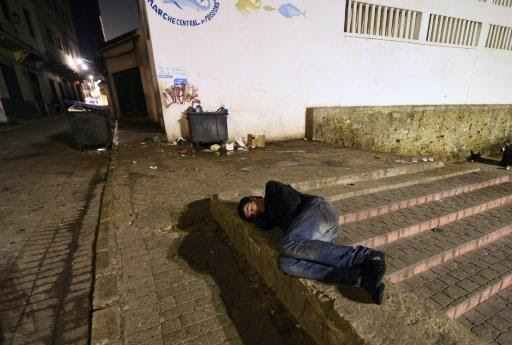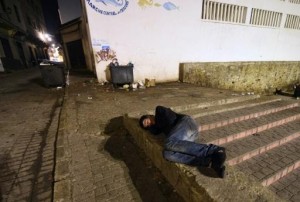Yahoo News
by Laurence BOUTREUX – AFP
One in five youths in several North African countries and Lebanon would like to emigrate in search of better prospects, including those with university degrees, according to a survey conducted for the European Commission.
The survey of 10,000 people in Algeria, Egypt, Lebanon, Morocco and Tunisia found a deep sense of “frustration and social exclusion”, according to Elena Sanchez-Montijano at the Barcelona Centre for International Affairs (CIDOB), who coordinated the study.
In Tunisia, 53 percent of youths said they wanted to emigrate, according to the report released on Thursday, six years after the “Arab Spring” revolts that swept the region starting in Tunisia in late 2010.
“The main cause that is pushing these young people to want to leave is, once again, economics: find a decent job and a better standard of living,” according to a summary of the “Sahwa” project’s report, from the Arabic word for “Awakening”.
“The indifference to politics is worrisome — nearly 60 percent of young people eligible to vote didn’t do so in the most recent elections,” Sanchez-Montijano said.
“But for them, that’s not the main problem, but rather the feeling that they’re unable to become an adult,” she added.
“They see that they are not going to become self-sufficient quickly — find a job, leave their parents’ house, get married.”
For 28 percent of respondents, a low standard of living was the biggest problem, followed by the economic situation (22 percent), jobs (12 percent) and education (10 percent).
– Gloomy prospects –
In Algeria, about 25 percent of youths want to leave, said Nacer-Eddine Hammouda, of the CREAD economic research centre in Algiers.
Get your Kids Excited to Learn!
ABCmouse.com Sponsored
“And significantly, getting into university increases the desire to emigrate,” said Hammouda, who carried out the survey in Algeria.
For young Tunisians, the ouster of president Zine El Abidine Ben Ali and the country’s first free elections in 2011 gave many young people hope that they would break into the public and political realms.
“Unfortunately, it has been the opposite,” said Fadhila Najah, who oversaw the country’s survey. “More and more they are being governed by very old people.”
Sanchez-Montijano also said that when asked questions about self-identity, most youths claimed their nationality first — Moroccan or Lebanese, for example — and their religion second.
About 18 percent of respondents said they went to pray each day, and when asked about how they spent their free time, the most common response was “Go out with friends”, she said, followed by “Go to the mosque”.
In terms of schooling, the broad opinion was that education systems were “rigid, too theoretical and out of sync with the job market”.
But for Hammouda, there was cause for optimism in Algeria: “Women are encouraging their daughters much more to pursue their studies”, with a third of young women reaching university, compared with just a quarter of young men.
AFP









